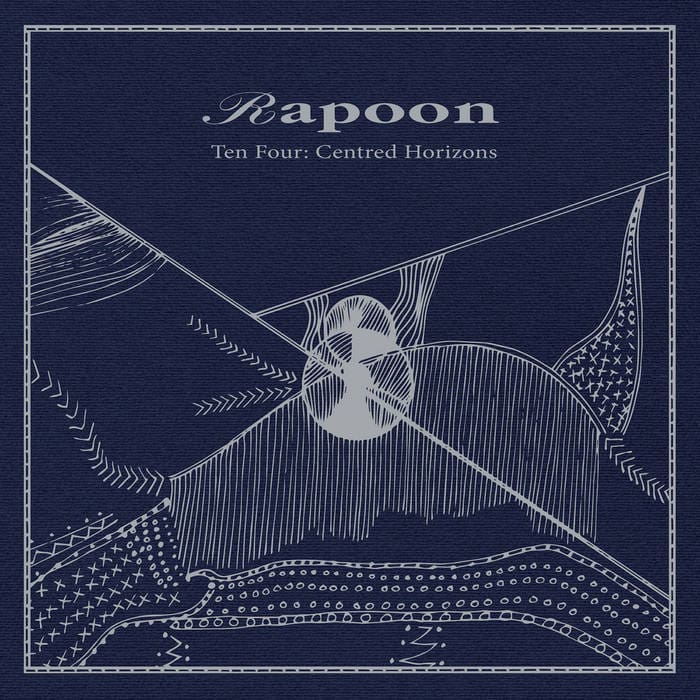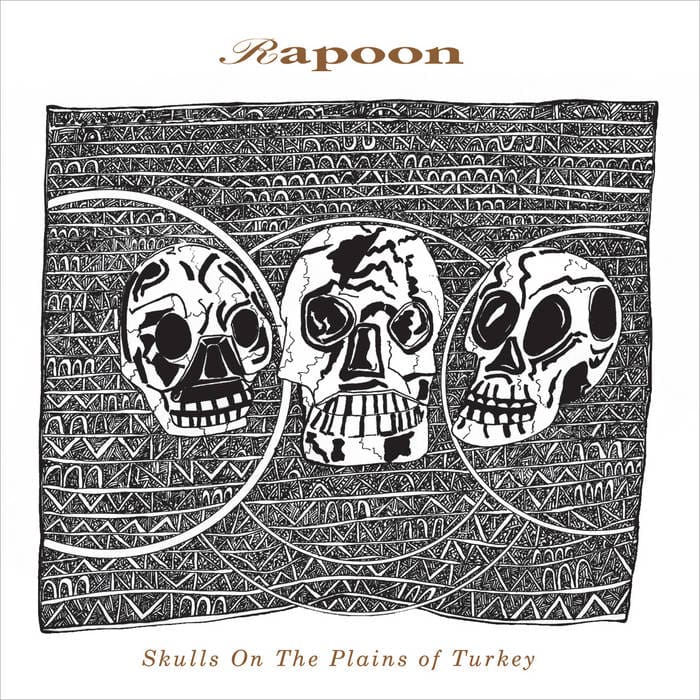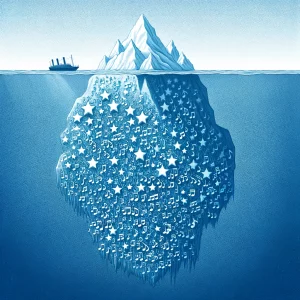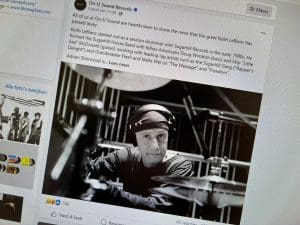‘Click Interview’ with Rapoon: ‘There Is Something Broader And More ‘In Depth’ About A Trilogy’


No doubt about it, Robin Storey will always be linked to Zoviet France. That project brings us back to the early years of industrial/experimental music. Right after the Zoviet France experience he started to release his music under the Rapoon moniker. Twenty five years later (in 2017) Winter-Light label released the first chapter of the “Mercury Rising”-trilogy, meant to celebrate the 25th anniversary of Rapoon. Two years later Robin Storey has accomplished this trilogy by releasing the final chapter. It was a perfect opportunity to catch this great artist (who’s also busy as writer, painter ao) to ask him a few questions.
(Picture credits: Dave Hall / Interview courtesy by Inferno Sound Diaries)
Q: The first chapter of the “Mercury Rising”-Trilogy was released in 2017 and meant to celebrate the 25th anniversary of Rapoon! What does this anniversary evoke to you and what did you try to accomplish by releasing this trilogy?
Robin:The anniversary year wasn’t something that I had actually consciously thought about. It was Mark at Winter-Light who pointed it out to me. I was a little surprised that so much time had passed, but then again it seems to pass very fast these days.
I had been kicking the idea around of the abandoned replicants for some time, mostly as an idea within an idea within an idea, for another novel I have been sketchily writing. When I sat down to start some new music this idea came back to me and carried over into the music creative process. It is a bit along the lines of a Kurt Vonnegut side plot. I was curious how they might develop their own ideas of society. Like all my ideas, I have no idea where they might go, or where they will end up.
Q: Musicians/bands are often releasing a ‘best of’ to celebrate an anniversary while you simply started working on new material. Was this trilogy a bit of a challenge and do you think it would be ever possible to release a ‘best of’-album (especially when considering such an impressive discography)?
Robin: I have been asked what are my favourite pieces of music, or which albums are my own personal favourites. I think I even made a playlist of some of my favourite pieces quite recently (that could mean anytime within the last five years).
My favourite things are always the pieces I am working on at the moment but sometimes I revisit things from the past and either think ‘wow that’s good’ or ‘what was I doing there’? Obviously it’s nicer if it’s the former. I couldn’t judge what was a ‘best of’.
Q: Musicians like to release trilogies, but what makes it fascinating especially when you know painters are still fond of triptychs and writers like trilogies as well?
Robin: There is something broader and more ‘in depth’ about a trilogy, you don’t feel like you have to hurry to get somewhere. It can be a challenge to get right though. One of my favourite books of all time, Thomas Pynchon’s “Gravity’s Rainbow” has a long narrative at the beginning of the book about all the different things you can make to eat using bananas. I have read the book a few times over the years and this is the one bit I just skip over… maybe it’s because I am allergic to bananas. I listen to older pieces of my music and sometimes find myself thinking… this is going on a bit long. I try to keep things just as long as they need to be these days. Whether I succeed or not is another thing.
Q: How much of the ‘young’ Robin Storey and early Rapoon do you still recognize in your latest works? What have been the main evolutions and changes in the writing & production process?
Robin: That’s interesting because I have been deliberately listening to older material to try and disseminate what made it interesting, both to me and to the listener. I think it’s the worst thing an artist can hear when someone says ‘I like your earlier stuff’ the pause afterwards implying , ‘your stuff nowadays is bollox’. But there is no going back. You can’t unlearn the things you have learned along the way. You can just try and keep interested in what you are doing and not try to please someone else.
I change the way I do things a lot. Sell equipment and buy new pieces that I don’t know how to use. Learning how to use them is the best way of producing things that are interesting for myself. The learning process is interesting. The trial and error.
Q: From Zoviet France to Rapoon, I think we might say you’ve seen it all! I however want to ask you a question about the 80s, which obviously was a decade of great artistic creation –and not only in music, characterized by a great artistic freedom and pure underground spirit. What did you keep in mind from that period and how have you seen things changing till today?
Robin: There was a certain creative dynamism that existed in the 80’s. It depended on so many random factors. One of the driving forces behind the creative output of Zoviet France was the differences between the people involved and then putting them all into the same big house. It wouldn’t be too ridiculous to say we all lived Zoviet France. It wasn’t just a music and art project, it was a living experience. We really did feel apart from anything else that was going on and it did feel very underground and detached.
I have fond memories of that time. But it certainly wasn’t ideal. I still keep apart from things as much as possible, although I have made some great friends over the years who are more involved in whatever ‘scene’ is current and occasionally they drag me out to have a look.
Q: One thing is for sure, you never really suffered from a writing block and never stopped releasing several albums a year! How do you explain this high productivity (more than 60 albums in 25 years!!!) and what are the further artistic plans you want to accomplish?
Robin: I just love starting new things. It’s the same with painting. A blank piece of paper. I have no idea where it will go to when I start putting paint on it. The interactive process is one I enjoy, although it is also, sometimes , challenging and exhausting. Yet at the end there is something that exists, where before there was nothing. There seems no end of possibilities because the variations, juxtapositions, influences of chance make for endless artistic output.
Also, importantly, I feel like I just plug in to some creative current (as Stockhausen spoke about) and so it’s not just me that is the creator. I am, in part, just a receiver.
Since you’re here …
… we have a small favour to ask. More people are reading Side-Line Magazine than ever but advertising revenues across the media are falling fast. Unlike many news organisations, we haven’t put up a paywall – we want to keep our journalism as open as we can - and we refuse to add annoying advertising. So you can see why we need to ask for your help.
Side-Line’s independent journalism takes a lot of time, money and hard work to produce. But we do it because we want to push the artists we like and who are equally fighting to survive.
If everyone who reads our reporting, who likes it, helps fund it, our future would be much more secure. For as little as 5 US$, you can support Side-Line Magazine – and it only takes a minute. Thank you.
The donations are safely powered by Paypal.










